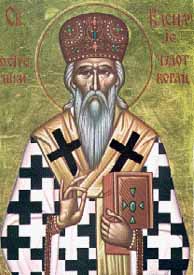 W
WSaint Basil of Ostrog was a Serbian Orthodox bishop of Zahumlje who is venerated as a saint in the Eastern Orthodox Church.
 W
WĐorđe Branković was a Transylvanian Serb diplomat, writer, and self-proclaimed descendant of the medieval Serbian Branković dynasty. He served as the agent representing the ruler of Transylvania at the Ottoman Porte. In 1680, he moved to Wallachia, whose ruler sent him as an emissary to the Habsburg Emperor Leopold I in 1688. That year, the emperor conferred the title of Imperial Count on Branković. After Habsburg troops captured parts of Serbia from the Ottoman Empire during the Great Turkish War, Branković attempted to restore the medieval Serbian state with him as its hereditary ruler. His venture failed in its inception, and Habsburg authorities arrested him in 1689. He lived on as a captive in Vienna and Cheb, though he was not held in a prison. He wrote the Slavo-Serbian Chronicles, which was influential in the development of early modern Serbian historiography.
 W
WArsenije III Crnojević was the Archbishop of Peć and Serbian Patriarch from 1674 to his death in 1706. In 1689, during the Habsburg-Ottoman War (1683-1699), he sided with Habsburgs, upon their temporary occupation of Serbia. In 1690, he left the Patriarchal Monastery of Peć and led the Great Migration of Serbs from Ottoman Serbia into the Habsburg Monarchy. There he received three charters, granted to him by Emperor Leopold I, securing religious and ecclesiastical autonomy of Eastern Orthodoxy in the Habsburg Monarchy. In the meanwhile, after restoring their rule in Serbian lands, Ottomans allowed the appointment of a new Serbian Patriarch, Kalinik I (1691-1710), thus creating a jurisdictional division within the Serbian Orthodox Church. Until death, in 1706, Patriarch Arsenije remained the head of Serbian Orthodox Church in Habsburg lands, laying foundations for the creation of an autonomous ecclesiastical province, later known as the Metropolitanate of Karlovci.
 W
WJovan Kantul, sometimes numbered Jovan II was the Archbishop of Peć and Serbian Patriarch, the spiritual leader of the Serbian Orthodox Church, from 1592 until his death in 1614. He planned a major revolt in the Ottoman Balkans, with Grdan, the vojvoda of Nikšić, asking the pope for aid. Owing to his activities for planning a Serbian revolt, he was arrested and put on trial in Istanbul in 1612. He was found guilty of treason and was executed two years later (1614).
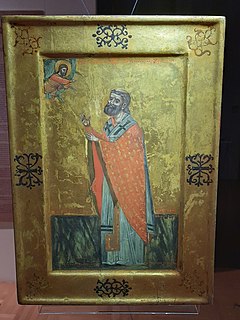 W
WPajsije of Janjevo was the Archbishop of Peć and Serbian Patriarch from 1614 to 1647, seated at the Patriarchal Monastery of Peć. He was also a writer, poet, composer, educator, and diplomat.
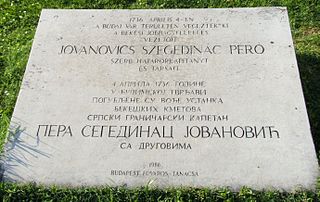 W
WPetar Jovanović, known as Pera Segedinac, was a Habsburg Serb military officer, a captain in Pomorišje. He led a Serb revolt in 1735.
 W
WSaint Stephen of Piperi is a Saint of the Serbian Orthodox Church.
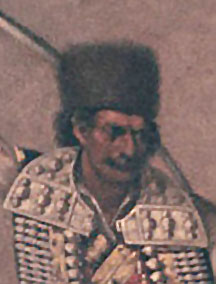 W
WBajo Pivljanin was a hajduk commander mostly active in the Ottoman territories of Herzegovina and southern Dalmatia. Born in Piva, at the time part of the Ottoman Empire, he was an oxen trader who allegedly left his village after experiencing Ottoman injustice. Mentioned in 1654 as a brigand during the Venetian–Ottoman war, he entered the service of the Republic of Venice in 1656. The hajduks were used to protect Venetian Dalmatia. He remained a low-rank hajduk for the following decade, participating in some notable operations such as the raid on Trebinje. Between 1665 and 1668 he quickly rose through the ranks to the level of harambaša. After the war, which ended unfavourably for the Venetians, the hajduks were moved out of their haven in the Bay of Kotor under Ottoman pressure. Between 1671 and 1684 Pivljanin, along with other hajduks and their families, were refugees in Dalmatia. Upon renewed conflict, he was returned to the Bay of Kotor and placed in charge of defending the frontier; in 1685 he and his band fell in battle against the advancing Ottoman governor of Scutari. Regarded as one of the most distinguished hajduks of his time, he is praised in Serbian epic poetry.
 W
WJovan Tekelija(c. 1660 – c. 1721–1722) was a Serb army officer serving in the Habsburg army. As commander of the Serbian Militia, Tekelija participated in many battles distinguishing himself in particular during the Battle of Zenta in 1697 where the Ottoman Empire suffered a stunning defeat. For his merit, he was appointed Captain of the Serbian militia in Arad and ennobled by Emperor Joseph I.
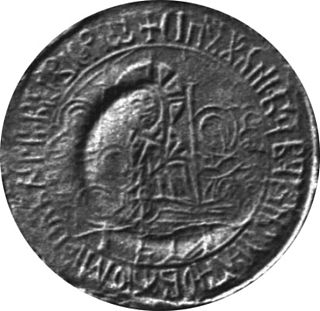 W
WVisarion was the Metropolitan of Herzegovina between 1590 and 1602.
 W
WAndrija Zmajević was a Baroque poet, the Archbishop of Antivari and a theologian.